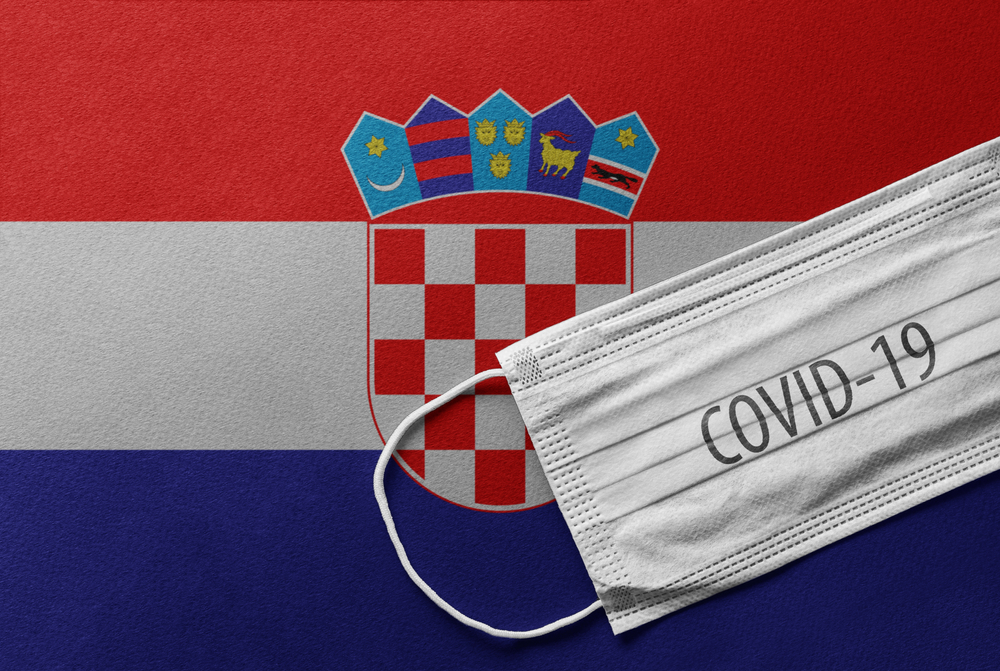In mid-March, when the number of coronavirus cases started rising across Europe, Croatia reacted swiftly by imposing restrictive measures: the national state of emergency was declared on March 13, and all non-essential businesses closed on March 19.
Journalists were among the essential workers who continued going to work every day, exposing themselves and their families to health hazards. But instead of getting praise for covering the health crisis, media workers saw their working conditions deteriorate further.
Precarity as profession
Croatia’s media market is characterized by a strong TV presence, a vast number of online portals and a print sector that has been in decline for years. Besides the Croatian public broadcaster (HRT) – funded by a licence fee paid by viewers and the state – the media are financed largely by advertisement, rather than subscription or readership support.
Up to 2016, the media landscape was more diverse and included several non-profit, independent media websites, financially supported by the state. Following the election of a conservative government, the state financial support scheme was scrapped in 2016 and has never been reinstated. Although many of these non-profit websites continue to exist, they struggle to survive and depend on available grants, subsidies and, often, journalists who accept to work without pay.
Financial worries and precarious working conditions were at the heart of the Croatian media’s hardships even before the pandemic. In late September, the Trade Union of Croatian Journalists, an association that promotes the rights of journalists and offers free legal support for its associated members, warned that many media executives took advantage of the pandemic to further reduce their labour costs.
According to the data gathered by the Trade Union and published in early April, the Croatian public broadcaster cancelled all of its contracts with freelance workers. Hanza Media, one of Croatia’s largest private media holdings, laid off 30 employees, cut salaries by 5 to 25% percent in some publications and cancelled a number of contracts with freelancers at the very beginning of the pandemic.
Journalists working in local media and freelancers were hit particularly hard. Salaries in the local daily Glas Istre (Voice of Istria) were cut by 50 percent, and the salaries of one of the most important local newspapers in the country, Novi List, were also cut. In a survey that the Trade Union of Croatian Journalists conducted in April, nearly 29 percent of 164 freelance journalists surveyed had had all their assignments (and 26 percent most of the assignments) cancelled since the Covid-19 crisis began.
After two months of lobbying by the Croatian Journalists’ Association (HND) and the Trade Union of Croatian Journalist, on May 20, Croatia’s Ministry of Culture confirmed that financial support would be secured for freelance journalists whose income had fallen since the beginning of the pandemic.
‘Journalist are worms’
Lower incomes and precarious working conditions aren’t the only threats Croatian journalists face, however. Attacks or harassment campaigns against journalists still occur.
On Easter Sunday, April 14, when a journalist from the local news website Dalmatinski Portal and a camera operator from N1 TV station tried to report on an Easter mass in the suburbs of the city of Split (the second-largest city in Croatia) that were being held despite the nationwide ban on gatherings, they were physically attacked by several churchgoers. Later in the day, a rally was held in the same suburb by masked, black-clad protesters in support of the priest who organised the mass. The protesters held a banner reading “Journalists are worms”. Croatia’s Interior Minister Davor Božinović condemned the attacks in a press conference on April 12. But similar prior cases of verbal and physical abuse had provoked no reaction from the authorities.
Political interference in the work of the public broadcaster, HRT, is also common. The Media Pluralism Monitor, which details threats to media pluralism and freedom in European Union member states and some candidate countries, shares this assessment. The Monitor’s 2020 report noted that “Croatia is an illustrative example of a country in which there are systematic cases of political interference in the appointment and dismissal of editors-in-chief, in particular with regard to the public broadcaster (HRT), and there are neither efficient regulatory safeguards nor efficient self-regulation to prevent this interference.”
Furthermore, current laws don’t sufficiently protect journalists from criminal proceedings for insult and defamation and civil proceedings (so-called SLAPP lawsuits – Strategic Lawsuits Against Public Participation). “The generally high number of lawsuits against journalists supports the assumption that SLAPP has become a systemic problem which negatively impacts media freedom in Croatia,” according to a study by Academic Network on European Citizenship Rights.
In May 2020, the Croatian Journalists’ Association noted that at least 905 lawsuits brought by politicians, businessmen and other public figures against journalists were ongoing in Croatia.
More concerningly, the public broadcaster also brought legal action against some of its own journalists and the Croatian Journalists Association (HND) due to “damage to the broadcaster’s reputation and good name” back in 2018. The alleged damage refers to a statement in which some HRT journalists, who are also members of HND, distanced themselves from various scandals involving the national broadcaster.
HND’s president, Hrvoje Zovko, was one of the journalists sued by the broadcaster. On August 25, 2020, a county court rejected an appeal by HRT (against a 2019 ruling that stated that Zovko had been illegally fired) ruling that Zovko “must be reinstated as editor-coordinator within eight days and compensated for lost income lost and interest.” But the judicial saga doesn’t seem to be over yet: HRT announced it would appeal to Supreme Court.
By IPI CorrespondentJelena Prtorić

